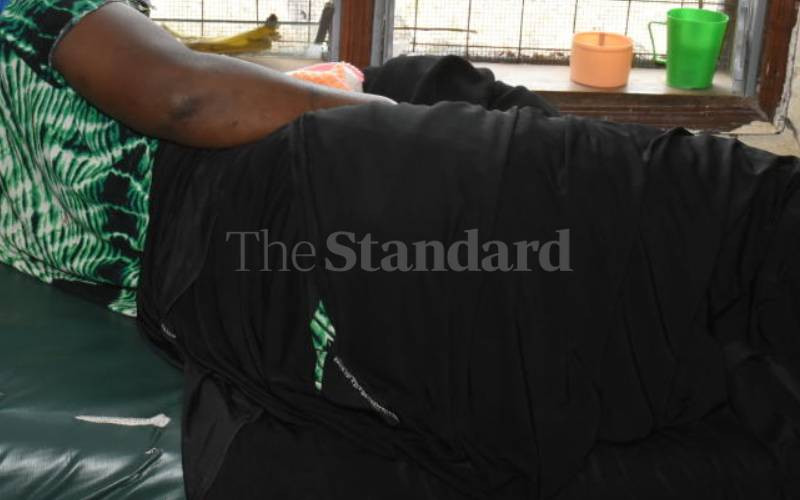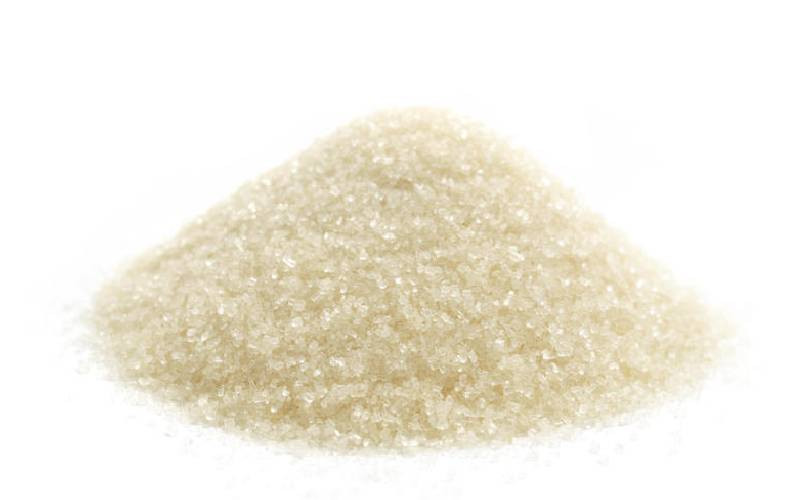NAIROBI, KENYA: Almost half of those who die globally, nearly 26 million people, including over 2.5 million children, have serious physical or psychological suffering and need palliative care and pain relief.
Globally, some 61 million people suffer serious physical and psychological grief and pain each year. Of this total, some 83 percent live in low and middle-income countries where access to low-cost, off-patent morphine is rare or completely unavailable, even though the cost should be pennies a tablet.
The annual burden in days of severe physical and psychological suffering is huge - 6 billion days worldwide, 80 percent in the low and middle-income countries, according to The Lancet Commission on Global Access to Palliative Care and Pain Relief, which studied this health issue for three years.
Of the 298.5 metric tons of oral morphine distributed worldwide, only 10.8 metric tons, 3.6 percent, go to low and middle-income countries.
“The pain gap is a massive global health emergency which has been ignored, except in rich countries,” says Felicia Knaul, Ph.D., chair of The Lancet Commission and Professor at the Leonard M. Miller School of Medicine at the University of Miami and Director of the Institute for Advanced Study of the Americas.
“This global pain crisis can be remedied quickly and effectively. We have the right tools and knowledge and the cost of the solution is minimal. Denying this intervention is a moral failing, especially for children and patients at the end of life,” adds Professor Knaul.
To solve the problem, The Lancet Commission calls for an essential package of palliative care to be made available by health systems worldwide. At the center of the essential package is immediate release, oral and injectable morphine. In high-income countries, a pain-relieving dose costs 3 cents per 10 mg. In low-income nations, the same morphine cost 16 cents where and when it is available.
“If low and middle-income countries could obtain morphine at the same price as rich countries, the annual global price tag for closing the gap in access to oral morphine would be $145 million, a fraction of the cost of running a medium-sized U.S. hospital,” says Professor Knaul.
“This is a pittance compared to $100 billion a year that the world’s governments spend on enforcing global prohibition of drug use.”
“The biggest shame is children in low-income countries dying in pain which could be eliminated for $1 million a year.”
“No health system can expect to meet the needs of its people without providing access to basic pain relief and palliative care,” says Paul Farmer, M.D., Ph.D., co-chair of The Lancet Commission and Professor at Harvard Medical School. “What we have here is an access abyss of palliative and pain relief for the poor,” says Dr. Farmer, who is also a co-founder of Partners in Health, which runs a hospital in Haiti and projects in Africa, South America, Mexico and Russia.
Lack of money is only part of the problem, according to Jim Yong Kim, M.D., Ph.D., President of the World Bank. “Failure of health systems in poor countries is a major reason that patients need palliative care in the first place,” say Dr. Kim, a co-founder of Partners in Health and former Harvard professor. “More than 90 percent of these child deaths are from avoidable causes. We can and will change both these dire situations.” here the pain crisis is most severe
In the most comprehensive global analysis of palliative care ever conducted, The Lancet Commission of 35 experts measured the need for palliative care in 172 countries, caused by 20 life threatening and life limiting diseases such as HIV, cancers, heart disease, premature birth, tuberculosis, hemorrhagic fevers, lung and liver disease, malnutrition, dementia and trauma injuries.
“The results are startling,” says Julio Frenk, M.D, Ph.D., a senior author of the report and President of the University of Miami. “The pain gap is a double-edged sword with too little access to inexpensive opioids for poor nations and misuse by the rich ones. The enormous disparity between need and availability of opioids for palliative care is growing and skewed against people living in poverty.”
Out of the 172 countries studied, 25 nations provided had almost no morphine and hence could not provide standard palliative care to their population with severe health-related suffering. Another 15 countries distributed enough opioid analgesic to attend to less than one percent of those needing pain reliefs.
In total, 100 countries had only enough to meet the needs for standard pain relief for less than 30 percent of their patients. More than 75 percent of the world’s population lives in countries that provide less than half of the morphine needed for palliative care.
 The Standard Group Plc is a multi-media organization with investments in media platforms spanning newspaper print
operations, television, radio broadcasting, digital and online services. The Standard Group is recognized as a
leading multi-media house in Kenya with a key influence in matters of national and international interest.
The Standard Group Plc is a multi-media organization with investments in media platforms spanning newspaper print
operations, television, radio broadcasting, digital and online services. The Standard Group is recognized as a
leading multi-media house in Kenya with a key influence in matters of national and international interest.











